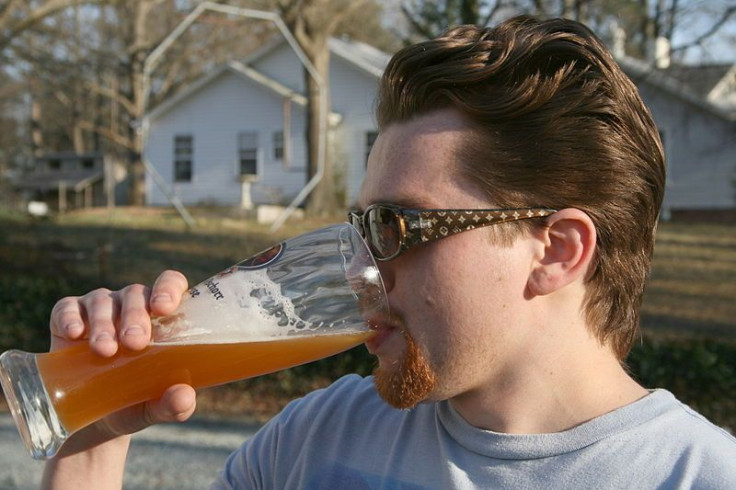Adolescent Development: Better Verbal Abilities In Childhood Can Lead To Teen Drinking Later On

A new study based on data collected by the University of Helsinki links better verbal development during childhood to more frequent drinking and intoxication during adolescence and young adulthood.
Antti Latvala, a post-doctoral researcher, and his colleagues used data from two ongoing population-based longitudinal studies of Finnish twins. FinnTwin12 includes twin participants born between 1983 and 1987, while FinnTwin16 encompasses twins born between 1975 and 1979. The researchers focused on twin pairs known to be dissimilar in language development skills during childhood.
By way of questionnaires, the researchers collected data on the twin pairs of the first group at ages 11 to 12, and again at ages 14 and 17.5, and as young adults between 20 and 24 years old. For twins within the other study group, the researchers collected data at ages 16, 17, and 18.5, and between ages 23 and 25 years old. The researchers also questioned parents as to the age of the twins when they spoke their first words, learned to read, and developed other skills. Finally, the twins themselves reported similarities and differences in drinking habits, intoxication, and alcohol-related problems across adolescence and young adulthood.
"We found that differences in language development in early childhood and school age predict alcohol use behaviors in adolescence and up to young adulthood," Latvala stated in a press release.
Oddly, the twin more verbally advanced in childhood was often the one to more frequently drink and become intoxicated during adolescence. The researchers also found that the more advanced twins were more likely to surround themselves with drinking friends while also being more “sensation seeking.”
“Peer associations and the tendency to seek novel experiences may in part explain the link between better language skills and engaging in drinking behaviors," Latvala stated in a press release. “However, even though an adolescent with good language and cognitive skills may experiment with drinking earlier than his/her less advanced peer, better verbal and intellectual abilities have [also] been found to be protective against developing severe problems with alcohol and other substances in adulthood."
Phew! The study, which was funded by the National Institute on Alcohol Abuse and Alcoholism, the Academy of Finland, and the Finnish Foundation for Alcohol Studies, may not hold true across the globe; the researchers noted that cultural differences may impact both verbal development and alcohol use. "These findings are of importance for identifying the role(s) of childhood cognitive and intellectual factors as predictors of subsequent alcohol-use behaviors to complement the larger literature on the consequences of alcohol use and abuse on cognitive and neuropsychological functioning in adulthood," Michael Windle, professor and chair of the Rollins School of Public Health at Emory University, stated in a press release.
Source: Rose RJ, Pulkkinen L, Dick DM, Kaprio J, Windle M, Latvala A. Childhood Verbal Development and Drinking Behaviors from Adolescence to Young Adulthood: A Discordant Twin Pair Analysis. Alcoholism: Clinical & Experimental Research. Forthcoming 2014.



























